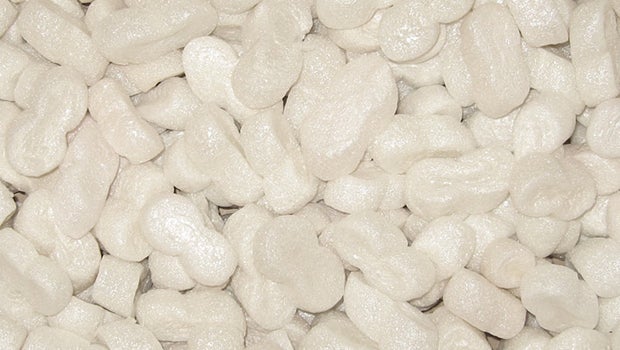Will packing peanuts power your next smartphone?

Researchers have found a way to repurpose packing peanuts into a battery component that could improve charging times.
For those unaware, packing peanuts are the squishy peanut-sized foam shapes that ship with goods in boxes for cushioning and protection.
The issues with packing peanuts is that although they’re very popular in shipping, they’re very rarely recycled.
“Although packing peanuts are used worldwide as a perfect solution for shipping, they are notoriously difficult to break down, and only about 10 per cent are recycled,” explained Dr Vilas Pol, an associate professor of chemical and materials engineering at Purdue University.
“Outside in a landfill, potentially
Related: Apple iPhone 6 review
Pol’s team hopes to change that, and has discovered a way to convert the packing peanuts into a vital component for lithium-ion batteries – that’s the type of cell found in common electrical items, like smartphones and tablets.
By heating the peanuts to between 500 and 900 degrees Celcius, the peanuts could be converted into thin carbon sheets.
Those materials can then be used to create anodes, which are the storage units in batteries where ions are held during recharging.
Interestingly, the team also found that these new anodes charged quicker than conventional graphite anodes.
Pol reckons than we’ll be able to recycle around 50 per cent of packing peanuts within the next five years, putting an end to wasteful peanut binning. What a time we live in…


